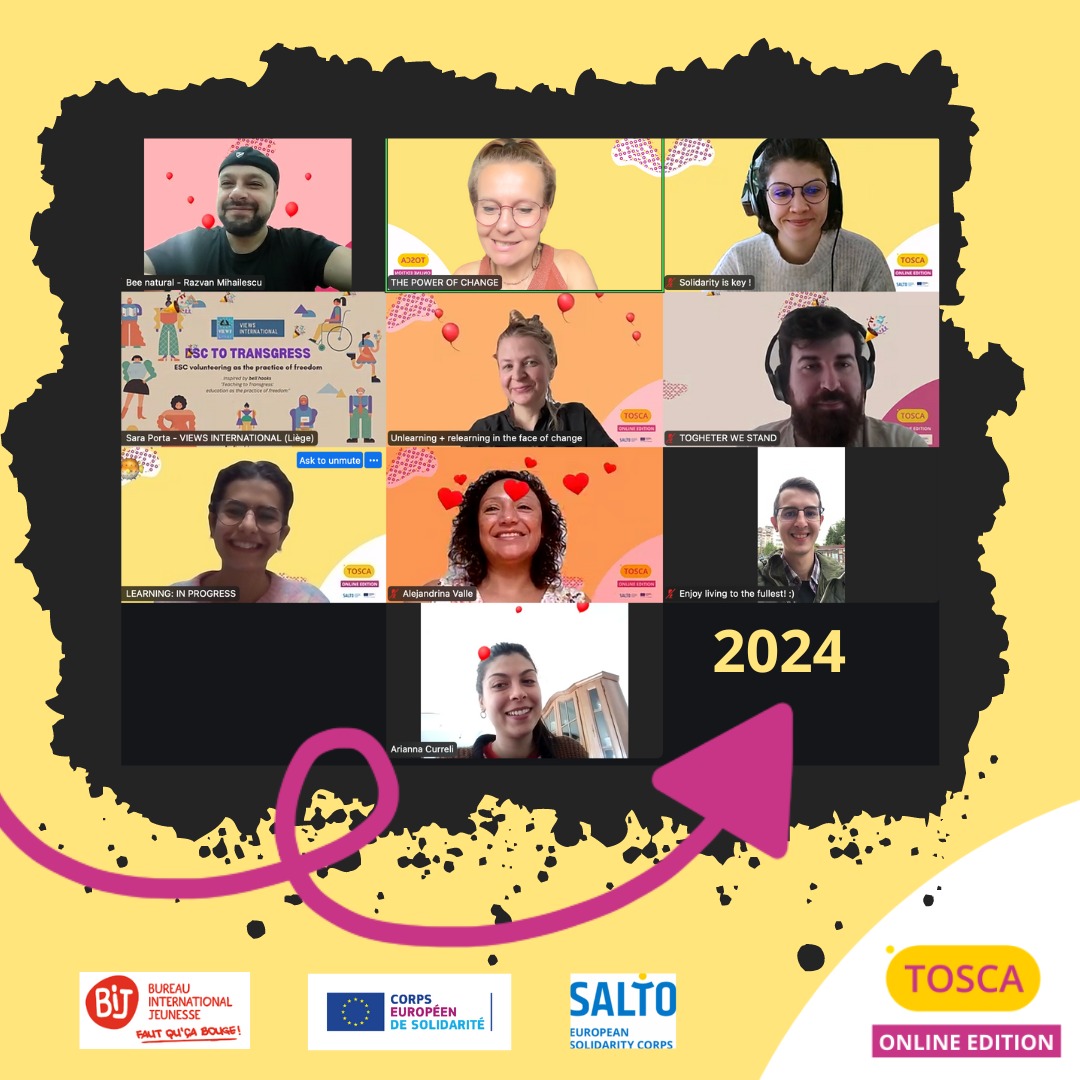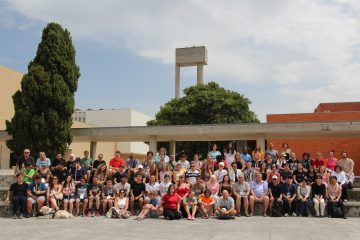From 11 to 18 September, the VIEWS International team was involved in the TOSCA Online Training Course, co-ordinated and monitored by the European Solidarity Corps Resource Centre and supported by the Belgian National Agency, Bureau International Jeunesse.
During the 6-day training, our colleague Sara Porta actively participated in several activities focusing on the importance of creating impactful European Solidarity Corps (ESC) projects both for volunteers and for the involved organisations.

Participants had the opportunity to listen and discuss with topic experts on how to implement successful volunteering experiences.
Bureau International Jeunesse provided a valuable Q&A session on the ESC and Erasmus+ Youth Programmes to clarify potential doubts and suggest how to design innovative projects.
At the same time, our Director of the Executive Office and Project Manager, Anca David, was invited to talk about adapted projects for volunteers with visual impairments.
It was an enriching opportunity not only for VIEWS but also for our ESC volunteer Kinga, who explained her volunteering experience in Liège.
Great attention was also given to create safe(r) spaces in youth projects, emphasising the importance of inclusivity and safety for volunteers. Concretely, Dàtà Mgeladzé, Project Coordinator at Qommunity, shared valuable insights and a useful checklist to promote open–minded, equal and respectful volunteering and working environments for all.
Finally, Sophie Chielens, International Exchanges Coordinator at Compagnons Bâtisseurs, presented the CLIC project, based on how to increase support mechanisms for ESC volunteers.
The following days were enriched by different individual and group sessions to focus on how we perceive “solidarity”, “quality”, “volunteering”, “impact on local communities” and mostly how we address Programme’s priorities within our organisations.
Thanks to supportive attendees and interactive modules, we exchanged best practices as well as daily challenges faced when working in different countries and with diverse backgrounds.

On the last day of activities, SALTO ESC showcased interesting upcoming opportunities for those active in the European Solidarity Corps and Erasmus+ sector where our ESC volunteer Patricia was also attending with Sara.
The latter led an alternative presentation about VIEWS, focusing on our “Terms and Commitment”.
Starting from the ambiguity of the team “inclusion”, Sara proposed alternative ways to reduce the discomfort that such words can cause for and in some communities.
As a result, she referred to Italian writers and activists such as Vera Gheno and Fabrizio Acanfora who have reflected on the same term. On one hand, they focused on the discrepancies of “inclusion” and, on the other hand, they provided interesting alternatives (e.g. “Coexistence of Differences”) that might be considered a first step to a more tangible equal world for all.
Finally, inspired by the speech shared by the Italian performer, Drusilla Foer, Sara invented a neologism “Coexistence of Uniqueness(es)” that, hopefully, will let everyone feel heard and unique.The latter led an alternative presentation about VIEWS, focusing on our “Terms and Commitment”.
![A slide from Sara's presentation. The slide talks about the concept of "Coexistence of Uniqueness" and features a speech by Italian artist Drusilla Foer: "'Diversity' is a word I just do not like when I verbalise it, I always feel that I betray something that I think and feel. I serched for a term that could worthily replace a word that is so incomplete for me. I found a very convincing one: 'uniqueness'. It is a word that I like and that everyone likes, because we are all capable of noticing the uniqueness of the Other and we all think we are unique. Certainly of beautiful things, no? Ambitions, values, beliefs, talents. [One must] take by the hand all the things that inhabit us, the things that we think are ugly, and lift them up. They rise up with us in the purity of the air, in the freedom of the wind, in the sunlight, in a great embrace, in love. It will be beautiful to embrace our uniqueness and, at that point, I believe it will also be more likely to open up to the uniqueness of the Other and to come out of this state of conflict that distances us".](https://viewsinternational.eu/wp-content/uploads/2024/10/Picture4.png)
To conclude the day, other participants shared their presentations from Belgium, Italy, Spain, Romania and Poland. It was an enriching opportunity to openly talk about our work with other motivated and committed organisations in the youth field.
A huge thank you to the organisers, SALTO ESC and Bureau International Jeunesse, as well as to the supportive TOSCA trainers and kind participants from:
– Asociación Europa 2020 (Spain)
– The Social Circle (Spain)
– Asociatia Go Romania (Romania)
– Associazione Nur (Italy)
– Europe4Youth (Poland)
– Orfeo Art (Belgium)

